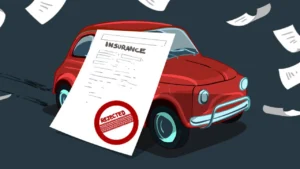As we go through life, we acquire assets and build wealth that we would want to leave behind for our loved ones in case of our untimely demise. Contingent beneficiary plays a key role here. While the thought of death is never a pleasant one, it is essential to plan for it by creating a solid estate plan that outlines how our assets will be distributed after we’re gone. One important aspect of estate planning is designating beneficiaries, including primary and contingent beneficiaries. Let’s understand what a contingent beneficiary is and everything you need to know about it.
Table of Contents
What is a Contingent Beneficiary?
A contingent beneficiary is a person or entity named in an estate plan to receive assets if the primary beneficiary is unable or unwilling to receive them. In other words, a contingent beneficiary is a backup beneficiary who will receive assets only if the primary beneficiary dies before the owner of the assets or is unable to inherit them for any other reason. For instance, if you name your spouse as your primary beneficiary, you can name your child as a contingent beneficiary in case your spouse passes away before you or chooses not to inherit the assets for any reason.
What is the Difference between a Primary and Contingent Beneficiary?
The primary beneficiary is the person or entity named to receive assets in your estate plan first. They are typically your spouse, children, or other family members. The primary beneficiary receives all the assets designated to them before the contingent beneficiary receives anything. However, if the primary beneficiary is unable or unwilling to receive the assets, the contingent beneficiary takes their place and inherits the assets.
7 Reasons Behind Car Insurance Claim Rejections You Must Know!
Who Should I Put as Contingent Beneficiary?
When choosing a contingent beneficiary, it’s essential to consider their relationship with you and their financial situation. You should choose someone who you trust and who will be able to manage the assets effectively. If your primary beneficiary is your spouse, you can choose your children or other family members as your contingent beneficiary. If you don’t have any family members, you can choose a charity or other non-profit organization as your contingent beneficiary.
What are the 3 Types of Beneficiaries?
There are three types of beneficiaries: individual, entity, and class beneficiaries. An individual beneficiary is a person named to receive a specific asset in your estate plan, such as your car or house. An entity beneficiary is an organization, such as a charity or non-profit, named to receive a specific asset. A class beneficiary is a group of people who share a common characteristic, such as all of your children or grandchildren.
Should I Name My Child as a Contingent Beneficiary?
Naming your child as a contingent beneficiary is a common practice, especially if you have named your spouse as the primary beneficiary. However, it’s important to consider the age and maturity level of your child before naming them as a contingent beneficiary. If your child is a minor, you should consider setting up a trust for them, so the assets are managed until they reach a certain age or milestone. Additionally, if you have multiple children, you should consider naming them all as contingent beneficiaries, or at least designating a percentage of the assets to each child.

Conclusion
A contingent beneficiary is a crucial part of your estate plan. They are the backup beneficiaries who will inherit your assets if the primary beneficiary is unable or unwilling to receive them. When choosing a contingent beneficiary, it’s important to consider their relationship with you, their financial situation, and their ability to manage the assets effectively. By including a contingent beneficiary in your estate plan, you can ensure that your assets are distributed according to your wishes and that your loved ones are taken care of after you’re gone.





[…] What is a Contingent Beneficiary? Understand It In Detail! […]
[…] What is a Contingent Beneficiary? Understand It In Detail! […]